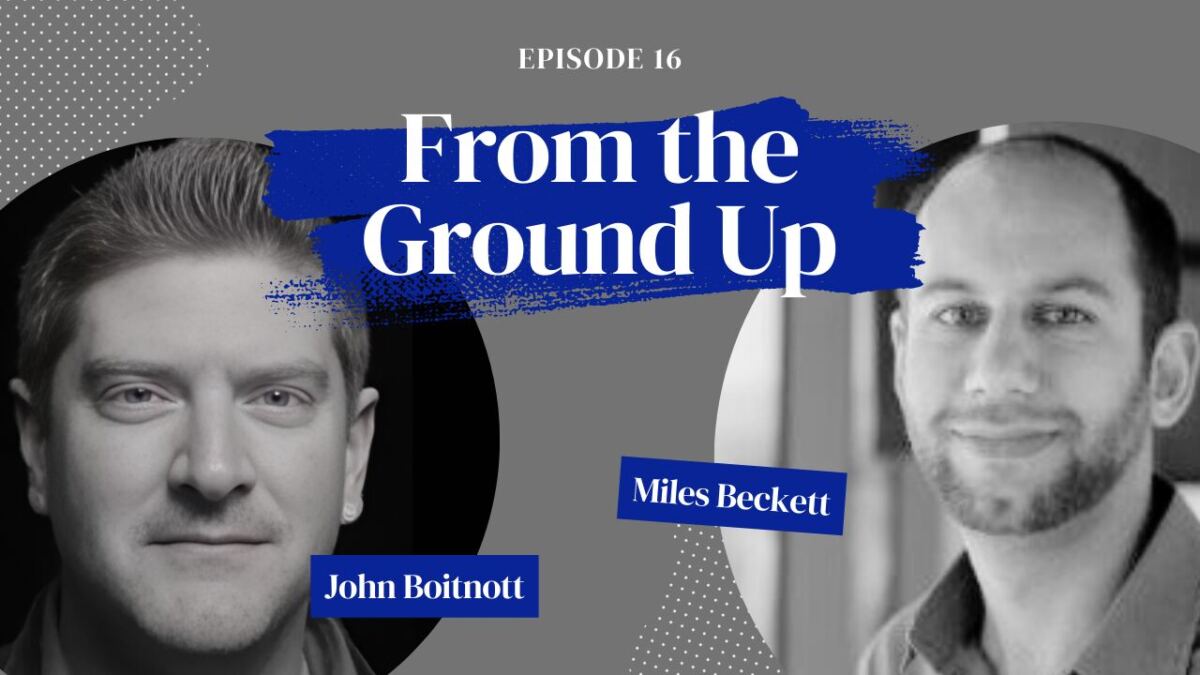Miles Beckett has never been one to follow a conventional path. His career has spanned medicine, digital media, and now AI-driven healthcare. With a background in plastic surgery, he made an unexpected leap into entertainment. The experience sharpened his entrepreneurial instincts, and eventually, it led him back to healthcare — this time, on the technology side.
Now, as CEO of Flossy, Beckett is tackling a long-overlooked problem in the dental industry: inefficiency. Many dental practices struggle with high staff turnover, missed calls, and administrative overload. Flossy aims to fix this with AI-powered automation, making it easier for dentists to manage appointments and patient communication while reducing operational headaches.
From Medicine to AI
Beckett’s transition from surgery to tech wasn’t just about career change, it was about recognizing inefficiencies and finding ways to solve them. His initial foray into digital media proved he could leverage emerging technology to connect with audiences in new ways. That same mindset now drives his work in AI, where he’s focused on improving the patient experience and practice efficiency.
Flossy’s AI receptionist, Fiona, is designed to handle scheduling, rescheduling, and patient inquiries with minimal human intervention. Dental offices often struggle to keep up with incoming calls, leading to missed opportunities. With Fiona, these offices can ensure patients are attended to without overwhelming their staff.
Why Dentistry Needs AI
Running a dental office involves a constant stream of administrative tasks. Staff juggle answering phones, checking in patients, processing payments, and managing schedules. With so much to handle, calls frequently go unanswered, and patient experience suffers. Studies show that as much as 35% of calls to dental offices go to voicemail, meaning lost appointments and revenue.
Most dental offices don’t have the resources for a dedicated call center. Instead, front-desk employees split their time between administrative and clinical support tasks, making it impossible to answer every call. Flossy’s AI changes that by handling 80% of scheduling-related inquiries, keeping operations smooth and efficient.
How Fiona Works
Fiona isn’t just another robotic phone system. She engages in natural conversations, answering patient questions about office hours, dentist availability, and even basic clinical concerns. Instead of navigating frustrating phone trees, patients can speak normally, and Fiona responds in a way that feels intuitive.
Flossy is also working on outbound capabilities for Fiona. Soon, she’ll be able to proactively follow up with patients for rescheduling, check-ups, and appointment reminders, further optimizing workflow. The idea isn’t to replace human interaction, but to ensure that dentists and their staff can focus on what matters most, which is patient care.
The Business Case for AI
For many dental practices, the cost of missing patient calls adds up quickly. In many cases, booking just one additional appointment covers Fiona’s cost for an entire month. She operates at a fraction of the expense of a full-time employee while ensuring patient engagement and reducing staff workload.
Beckett sees AI’s impact extending far beyond dentistry. Administrative inefficiencies plague the broader healthcare industry, and AI-driven solutions can relieve much of that burden. Insurance verification, appointment scheduling, and patient triage are just a few areas where AI can make an immediate difference.
The Future of AI in Healthcare
AI won’t replace doctors or dentists, but it will change how healthcare functions. Beckett likens it to airplane automation — planes can fly themselves, but human oversight remains essential. The same will hold true in healthcare. AI will handle repetitive tasks, allowing clinicians to focus on decision-making and direct patient care.
Looking ahead, AI could revolutionize everything from diagnostics to patient interactions. Automated assistants could provide basic medical guidance, triage incoming concerns, and even facilitate follow-ups. The future of AI in healthcare is about efficiency and accessibility, making quality care available to more people while reducing strain on human workers.
Flossy is already proving that AI isn’t just theoretical, it’s here, and it’s transforming dentistry. By optimizing administrative work, Beckett is helping dentists focus on what they do best: caring for patients.
Want more From the Ground Up? Check out the other articles, or head over to YouTube or Spotify for full episodes.








